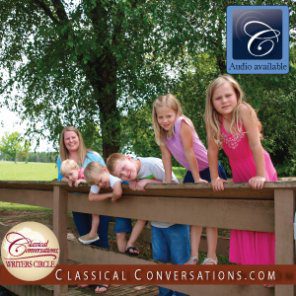“Be ready always to give an answer to every man that asketh you a reason of the hope that is in you with meekness and fear” (1 Peter 3:15, KJV). How do we, as homeschooling parents, prepare our children to be ready? For some, they are inclined to give their children all of the right answers while isolating them from the bad. For others, they are inclined to give their children the right answers and a safe environment for wrestling with those answers against the onslaught of competing ideologies. As homeschooling parents seeking to equip our children, we should allow them to face their doubts for three reasons: isolationism ultimately backfires, wrestling ultimately prepares, and testing ultimately strengthens.
Isolationism ultimately backfires. This argument is taken directly from Nancy Pearcey in her book, Saving Leonardo. She references a study by Fuller Seminary that discovered that the teens who were most likely to retain their Christian faith after high school were not the ones who had higher participation in prayer meetings, Bible studies, or youth groups. It was among those who identified their homes as places where they could interact with opposing ideologies and their own faith before leaving home. Our children need the opportunity to express doubt and confront it in order to become spiritually mature themselves. Isolationism prevents that interaction and the opportunity to mature spiritually.
Wrestling ultimately prepares. In the passage we opened with, Peter exhorts us to be ready to answer everyone who asks. The best way for someone to be prepared to answer a question is to have wrestled with it himself. Isolationism leads to parents training their children to memorize stock answers, but answers that the children have not wrestled with themselves. Therefore, the children do not have confidence in the answers that would be necessary when addressing “everyone that asks.” We may want our children to have the faith of a child (Mark 10:15), but as Pearcey reminds us, Francis Schaeffer’s response was, “Don’t you realize how many questions children ask?” The faith of a child is a faith that wrestles with questions and it prepares that child with a confidence in the answers and spiritual maturity.
Testing ultimately strengthens. This is a widely accepted concept in all of life. There is a ridiculous pop song on the radio that declares, “What doesn’t kill us makes us stronger.” The Bible teaches us to rejoice in our temptations and the trial of faith (1 Peter 1:6-7). Somehow, though, we do not connect those dots when we are walking our children through testing their faith against doubts, questions, and opposing ideologies. The Fuller study goes on to reveal that those students who have wrestled with these things are those who are most confident in their faith. By asking questions and wrestling with them, they have learned to test everything and hold on to the good (1 Thess. 5:21) as Paul taught.
Parents can help their children to experience this wrestling and testing—to grow in confidence in their faith—by simply creating a safe environment for it and then encouraging it. One objection comes from the parent who is afraid he will not have the answer his child needs. This, however, can actually help the child! To see that an unanswered question here and an unanswered question there has not caused dad’s faith to be shipwrecked will encourage the children not to abandon the faith because they do not have every answer at hand. Classical Conversations and Challenge tutors offer another safe environment for these conversations and interactions with opposing ideologies. Teaching the children how to ask good questions and giving them the tools to contemplate or research the right answers will also mature them spiritually.
We should allow our children to face their doubts because isolationism ultimately backfires, wrestling ultimately prepares, and testing ultimately strengthens. Our children are a gift from God, but ultimately they belong to Him. As we seek to be faithful in raising up a generation of children who will know God and make Him known, we must be willing to allow that generation to wrestle with their doubts and their faith just as He has allowed us to do so on our Christian pilgrimage.




